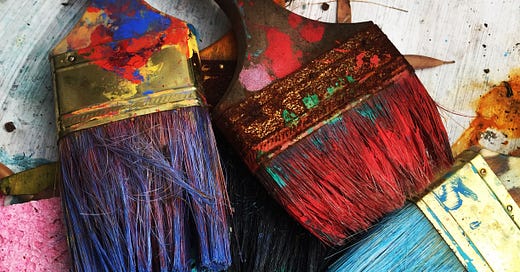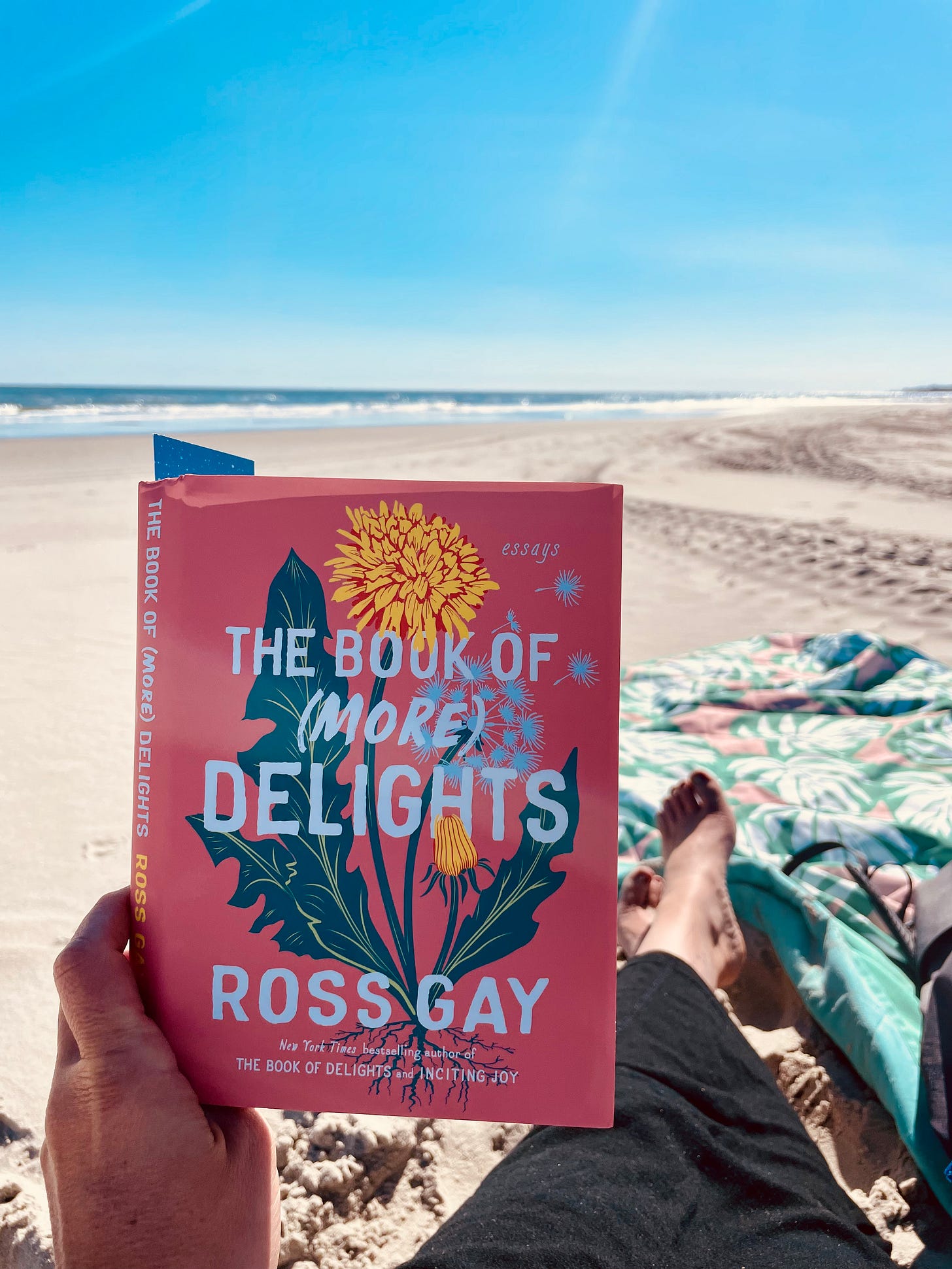
Today’s post is for the writers and artists, the makers and musers. Do you ever feel pulled between the quiet invitation to make something, and the loud pressure to “make a name for yourself”? Do you feel a tension between staying patiently with the materials of your art (lines of poetry, tubes of paint, bars of music) and turning your flashes of insight into squares you can share online? In other words: Do you ever feel the conflict between making and promoting?
I have. Especially after preparing to launch my most recent book, Psalms of Unknowing.
So, I wrote something for us: an “Artist’s Manifesto for the Digital Age.” It’s called “Protect Your Creative Self.” It’s for anyone who struggles to balance the pressure to promote with the urge to create. I’m sharing it here. You can also click on over to Brevity’s Blog, where it was first published.
Protect Your Creative Self: An Artist’s Manifesto in the Digital Age
I’ve been “launching” a book. It’s a lucky position. It means I spent ten-plus years on sixty or so poems. It means I listened to every syllable of every line, put every word on a scale, measured every vowel in my mouth, felt them whole and alive, or dead and deleted them. It means I assembled and arranged and rearranged all the poems, cut ones that didn’t belong, heard the poems beg for new poem-neighbors, and wrote those too, so that all the poems made a conversation. Or a journey. Or maybe more accurately a forest. It also means, miraculously, that I convinced a publisher to turn this collection/journey/forest into a book.
But now I’m “launching” the book. Which means, in the era of the Internet, that I should be hustling. Strategizing. Content-creating. My publisher has asked me to publish “companion” essays, email every influential person I know, and generate buzz on “socials.” The online articles advise me to update my website, ramp up preorders, and make swag to distribute to my hairdresser and dentist. And all this work feels sometimes—often—like the opposite of the urge from which the poetry collection came.
Even the language of the “book launch” is oddly ill-fitting of art. It’s rocket-ship-reminiscent, decidedly masculine, evoking a giant phallus probing the outer realms of the atmosphere, or the deepest depths of the ocean floor. I think of the submersible headed for the Titanic. I think of overconfident men wanting to go to very specific places in very narrow tubes that may or may not be soundly constructed. I think of ambition, pointed determination, a clear end-goal, the word success.
This is not how I think of my art—as a torpedo fired into the sky. My art and I aren’t colonizing moons. If they must be airborne, these poems are more like seeds. I hope they scatter across fields that might receive them. I hope they float, adrift. I hope a few land, take root, sprout, maybe bloom briefly into something that stuns. Something that, upon closer examination, helps an attentive soul breathe.
I had a dream recently. I was living in a house with two roommates. One roommate was an actual author with a huge Twitter following. The other roommate was an unnamed woman. She was weird, and vulnerable, and prone to hiding behind my right side. Hair hung over her face. In the dream, I told the Twitter-popular author that, if I ever had to choose between the two roommates, him or her, I’d choose her. Every time. He’d get the boot.
For the first few hours of the day, I had no idea what the dream meant. Because I’m dense. But it became obvious. Twitter-famous male roommate was my Author-Promoting Self. My Hustle Self. Unnamed female roommate was my Creative Self. My dream was making clear my priorities: the one serves the other. If the Promoting Self threatens the Creative Self, the Promoting Self has to go. What would the Promoting Self promote, anyway, without creativity?
So now, after the companion essays and the press releases and the book swag and the launch party, I’m trying to write again. I’m sitting down at the altar of the laptop and trying to figure out what I have to say. I’m feeling my way into new essays and poems. It’s not easy. The Author Promo Self is loud. With each word I type, he asks, “But where is this going? How will we get it published?” He needs to pipe down. He’s not needed right now. I might need to make him rent an AirBnB.
Meanwhile, my creativity is playing hide and seek. But this is fine—she has never responded well to the sharp-pointed determination of masculine success. Whenever I think I’ve figured out how to lasso her into productivity, she slips through the rope, turns plasmatic. She winks at me, asks me to rest. She sashays away from me, beckoning with flaunty hips to follow into gardens or museums. She weeps behind me, whispers for me to listen. She is a very weird roommate in the house of my being. I honor her first, though, because in the end, she has always saved me.
A few tidbits to share:
I had the privilege of talking about my memoir, Raising a Rare Girl, with Ronit Plank on her podcast, “Let’s Talk Memoir.” If you like thinking about the craft of memoir-writing, this conversation is for you.
Are you reading Ross Gay’s Book of More Delights? It’s just as good as the first! I highly recommend. (Particular dee-light: reading it on the beach.)
I’ve finally learned the kinds of book I like in audio format: straight-up nonfiction! After loving Tricia Hersey’s Rest is Resistance, I’m onto Ingrid Fetell Lee’s Joyful, on the aesthetics of joy. All three of the above books would make a dynamite course, and I’m currently scheming how I can teach such a class some day.
This piece by my friend
is everyhing!What are you reading lately?
Go Phils!







I loved this so much, Heather. Thank you for it ✨✨
Well said; so true. Terrible irony that we must hustle to bring to the world a message that is the antidote to the hustle culture.